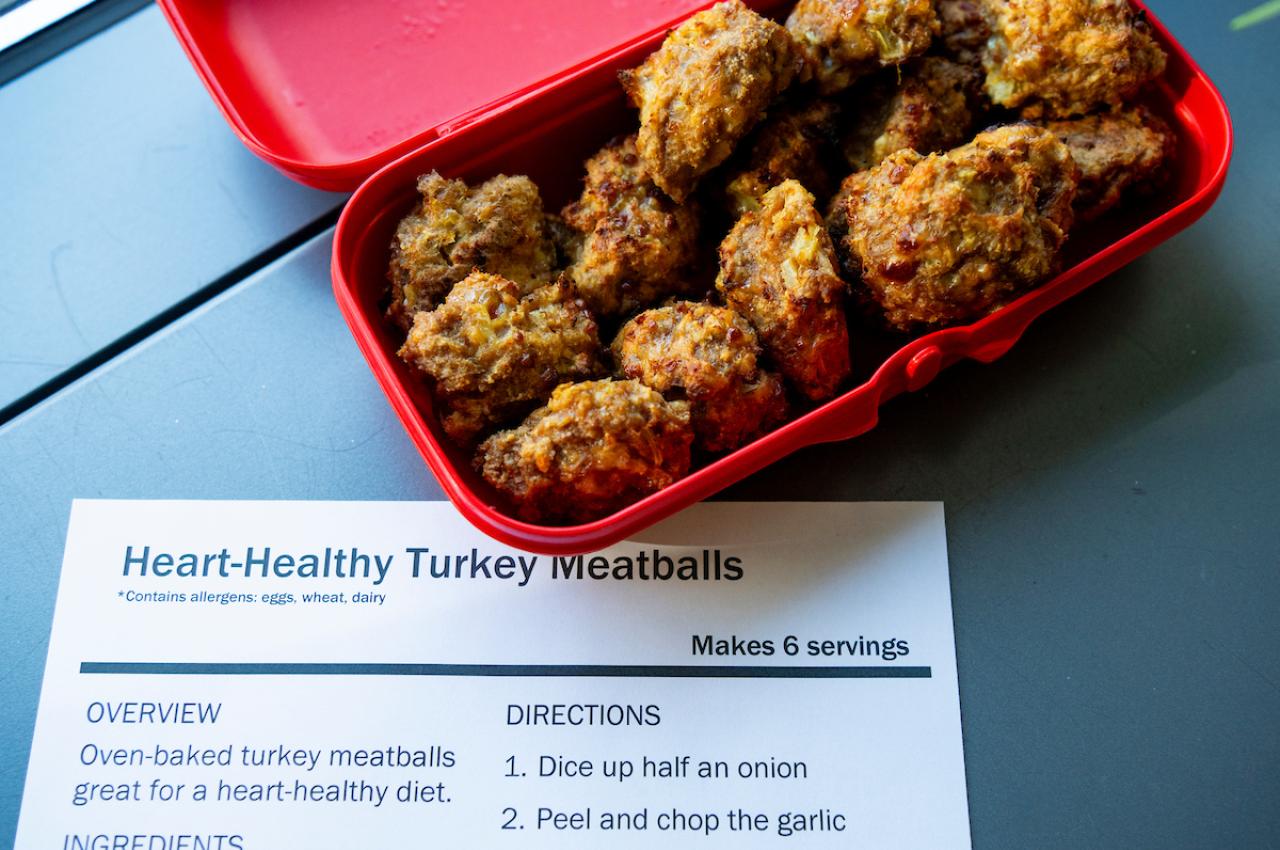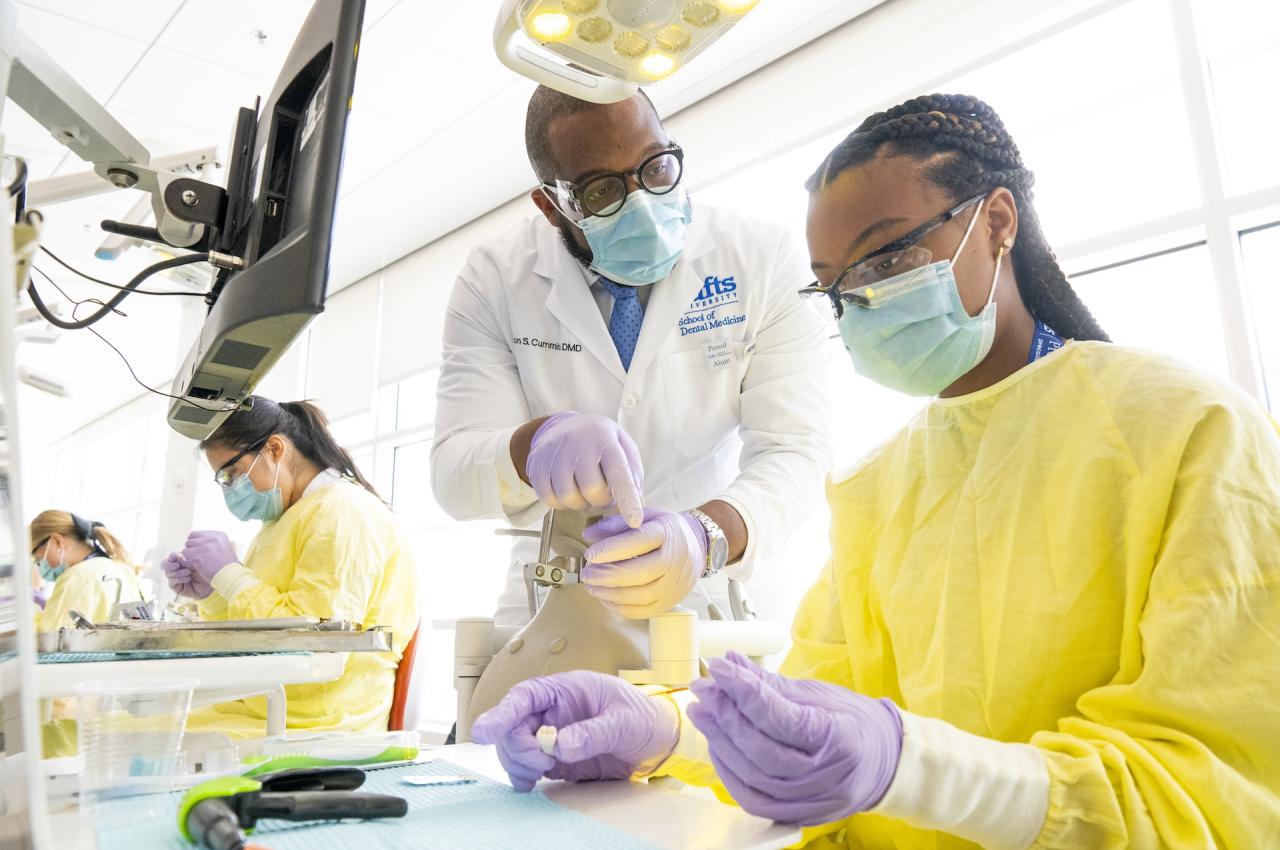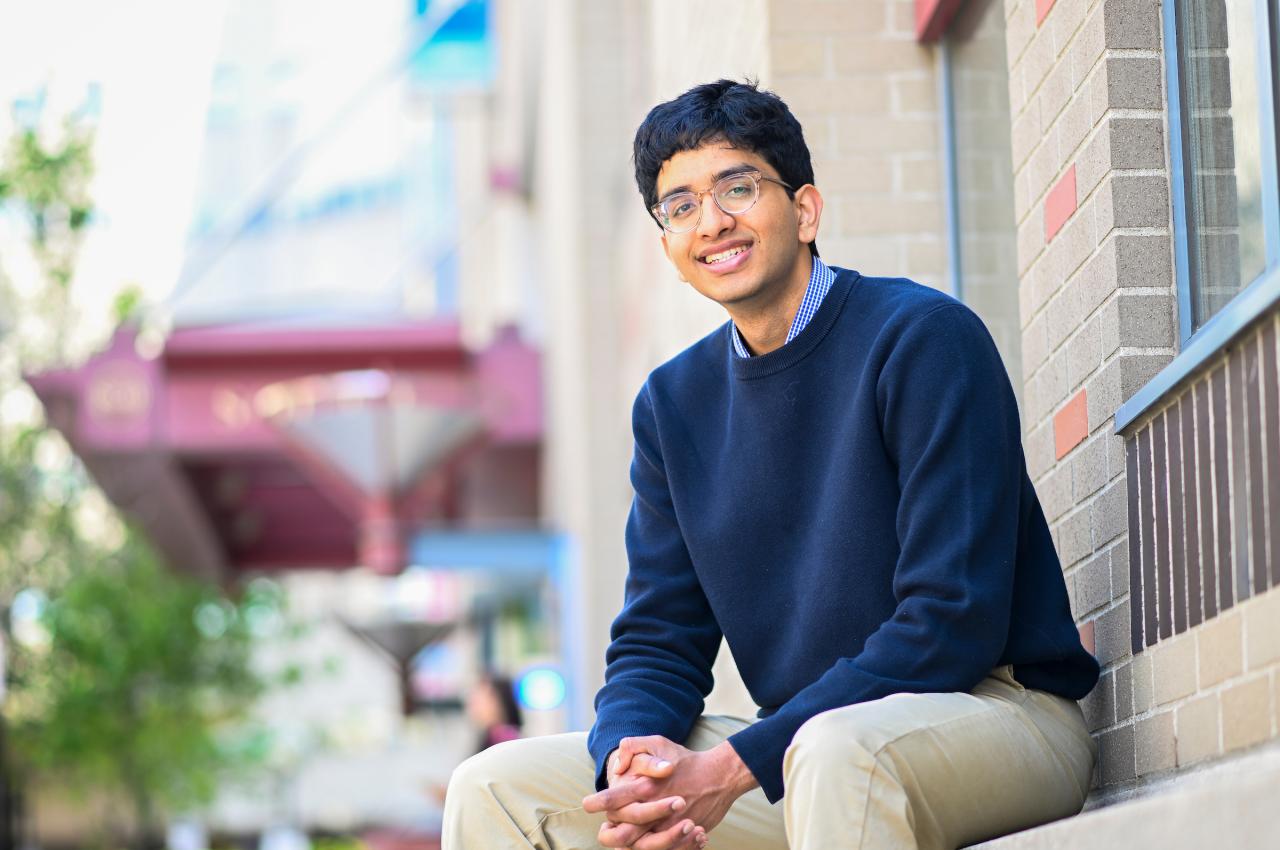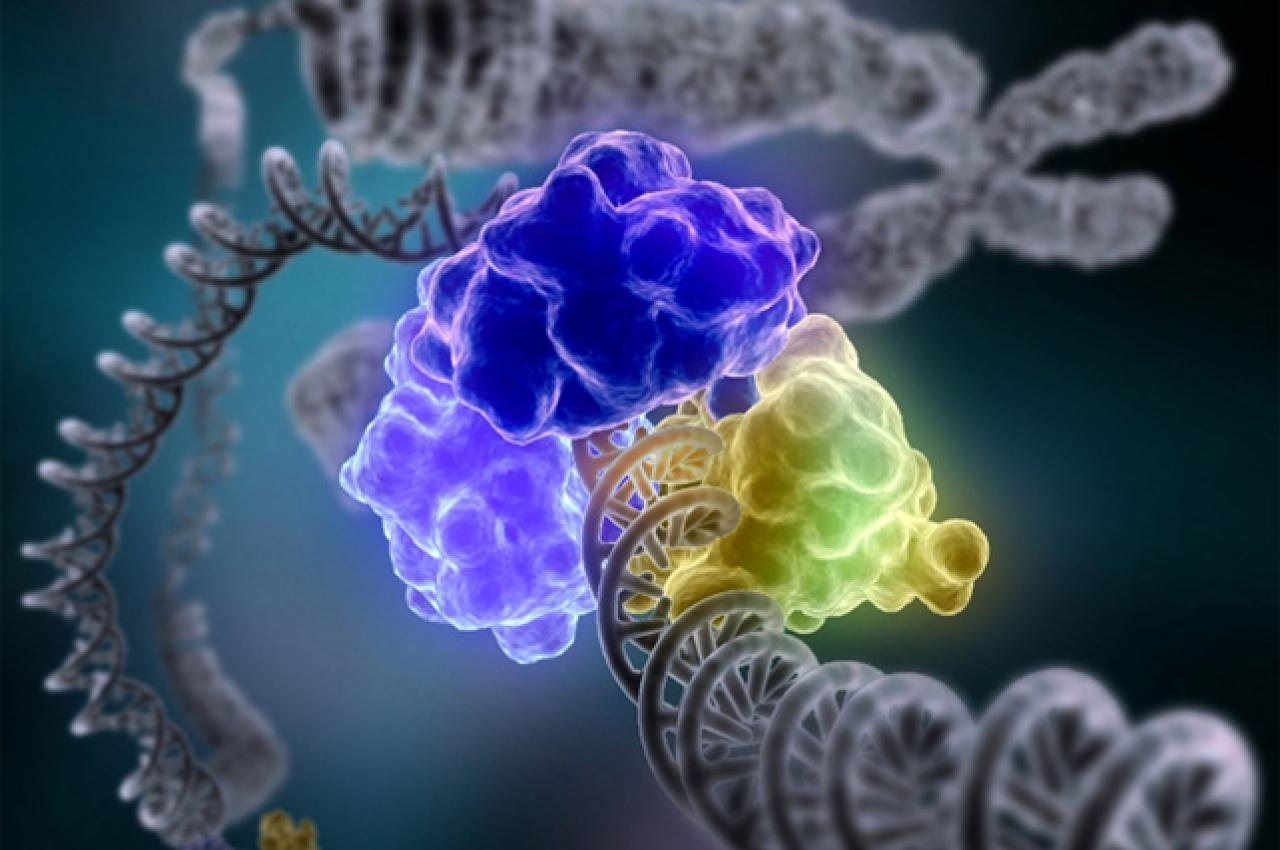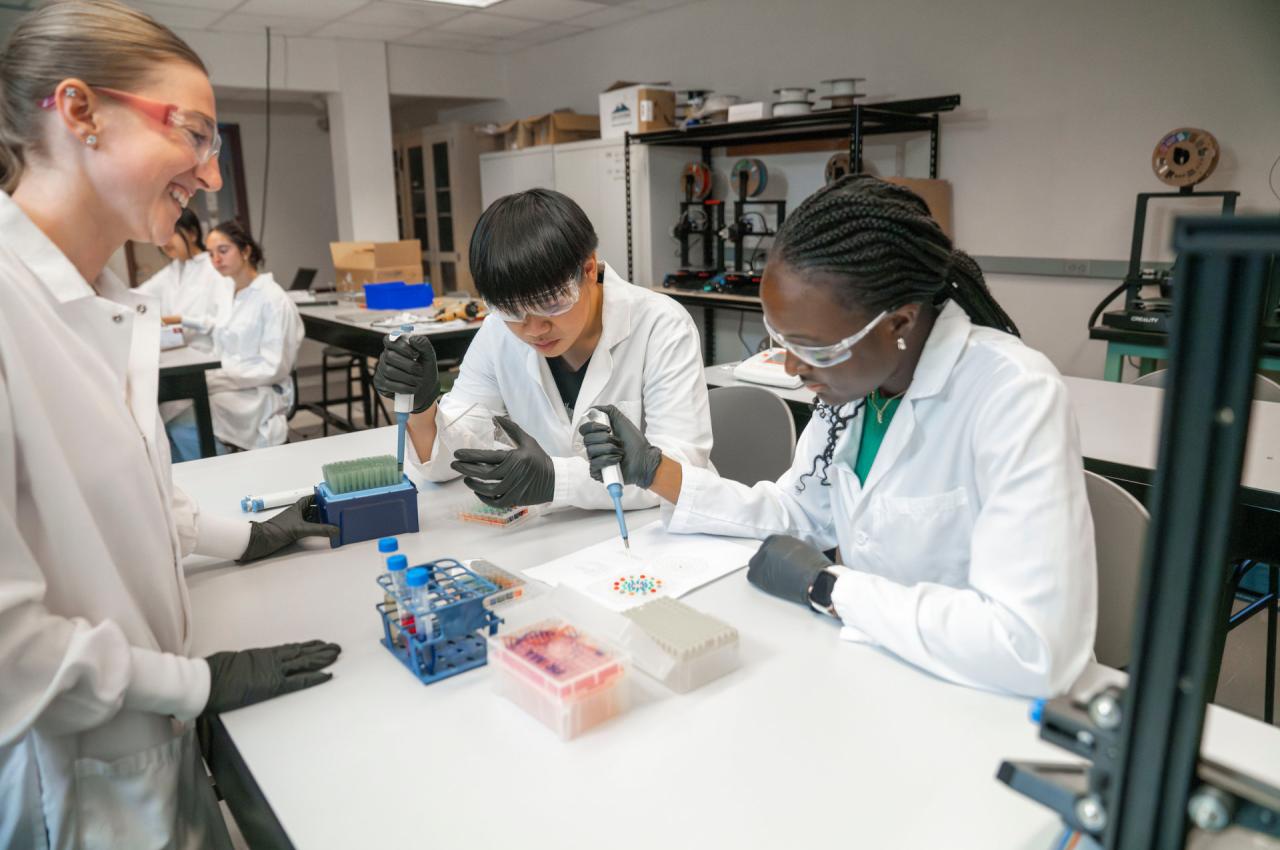Cooking in the Name of Health
Eating isn’t just a matter of sustenance or satiety. Food is a powerful form of medicine that can manage, prevent, and potentially reverse chronic diseases.
That’s the ethos behind a new course called Culinary Medicine, which the Gerald J. and Dorothy R. Friedman School of Nutrition Science and Policy piloted this past spring. It builds on the school’s new Food is Medicine Institute, a first-of-its-kind entity aimed at integrating food-based nutrition interventions into health care to treat disease and advance health equity.
Students gathered in a classroom at the Jaharis Family Center for Biomedical and Nutrition Sciences for a course on culinary medicine. Photo: Alonso Nichols
The eight-week pilot course was a collaboration between the Friedman School; the Tufts University School of Medicine and School of Dental Medicine; and the Culinary Medicine program of the AMPL Institute at Community Servings, a leading nonprofit provider of medically tailored meal interventions for individuals in Massachusetts and Rhode Island who are managing complex chronic illnesses.
School of Dental Medicine Assistant Professor Nadine Tassabehji—who is also a licensed and registered dietitian—helped secure the partnership with Community Servings. “The overall idea is to build future practitioners’ skills for sharing nutrition and cooking recommendations with their patient,” she said. “There’s definitely a need for a course like this, because when healthcare providers know firsthand how to cook for themselves, and how to use nutrition as medicine, they can then be better educators to their patients.”
Tassabehji offered office hours and managed teaching assistance for the class. “I already teach some of those topics in my courses, so I was excited to bring this to a kitchen setting so it could be more hands-on,” she said.
Jasmine Ipince, manager of education at Community Servings, and a registered dietitian nutritionist, ran most classes out of the organization’s Teaching Kitchen, which has the equipment and space to prepare any type of meal. She built on Community Servings’ existing culinary medicine program “to develop a program geared towards health sciences students being able to understand more about the role that nutrition plays in a patient’s care,” she said.
The course’s modules included an introduction to public health and nutrition; budgeting and meal planning; motivational interviewing and cultural competence; and meals tailored to various chronic diseases, to name a few.
A recipe cooked by a student in the culinary medicine class. Photo: Alonso Nichols
Each week, students would cook a relevant recipe from Community Servings’ own list. “When we studied the cardiac diet, the recipe that was selected was a butternut squash and turkey chili,” Ipince said. “That is really beneficial for somebody who just had a stroke, for example.”
Students learned that the chili is rich in fiber, low in sodium, and used a lean protein instead of beef—and got to eat it too.“A part of the class I really enjoyed was having a family style meal together where we eat what we just made and discuss what the students learned and any questions that have come up,” Ipince said.
In a recent survey of more than 1,000 U.S. medical students, nearly 58 percent of respondents said they received no formal nutrition education while in medical school for four years.
Yet understanding how nutrition affects health is crucial for a career in medicine, according to Olivia Stewart, MG25 (MPH), a Culinary Medicine student who graduated in May with a master’s of public health with a concentration in nutrition.
In addition to gaining that understanding, the course taught her valuable motivational interviewing skills, she said. “As someone who wants to be a dietitian, it’s important to know how to approach those situations. I think practice makes that better,” she said.
Christina Economos, dean of the Friedman School of Nutrition Science and Policy, stopped by a session of the culinary medicine class this spring. Photo: Alonso Nichols
Parin Khalifa, D28, who was first introduced to the importance of nutrition through Tassabehji’s craniofacial biology course, said the course taught her a safer, easier, and more efficient way to chop vegetables. “I really enjoyed that, because I didn’t know the way I had been holding the knife was wrong before,” Khalifa said.
But there were broader benefits, too. “I feel like I’m more confident when I talk about nutrition, and that’s really helpful for me once I get into the clinic and start seeing my own patients,” said Khalifa.
Tassabehji is continually trying to find creative ways to remedy this and help healthcare providers learn the value of nutrition and its relationship to health.
“I’m hoping we can make Culinary Medicine a permanent offering in the Boston campus,” she said.



